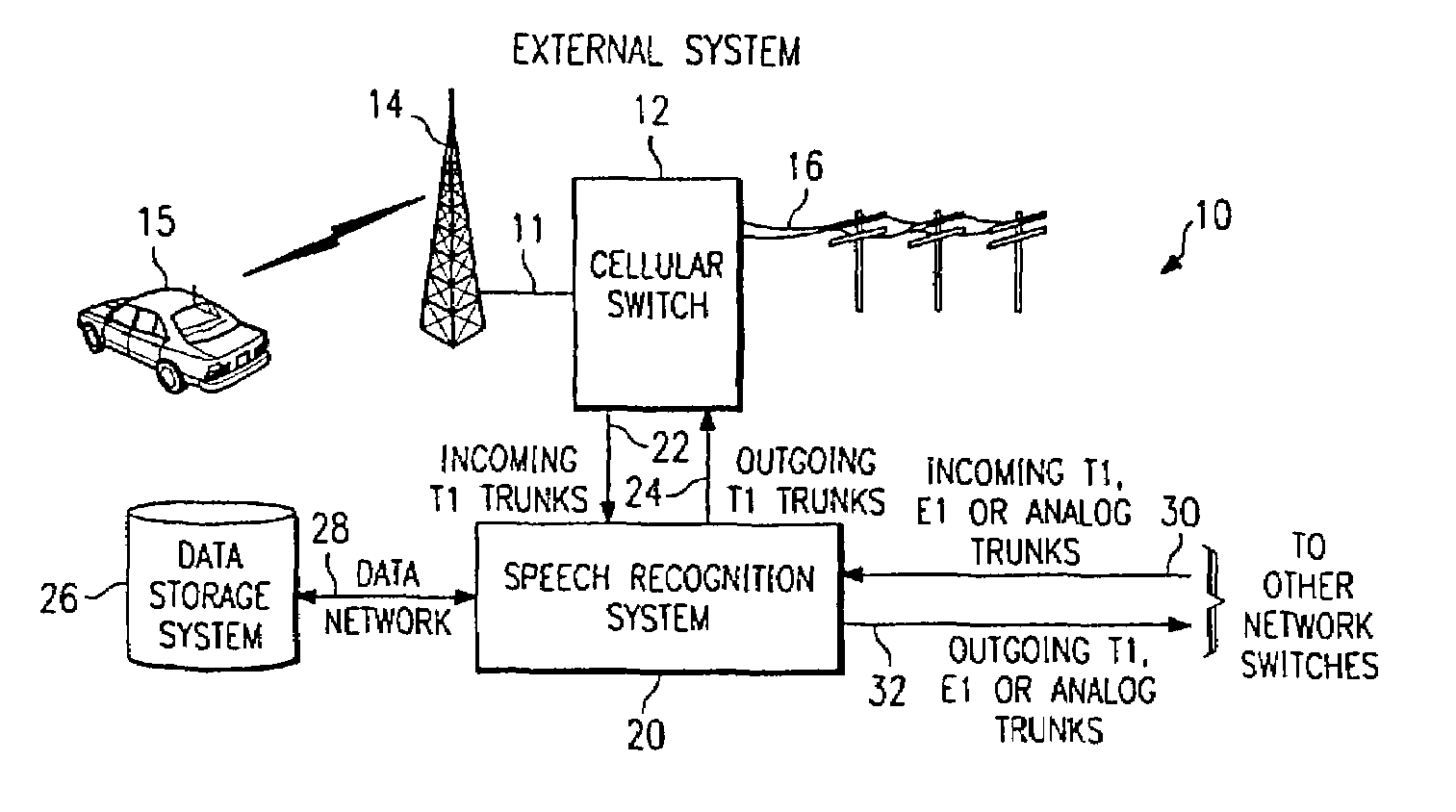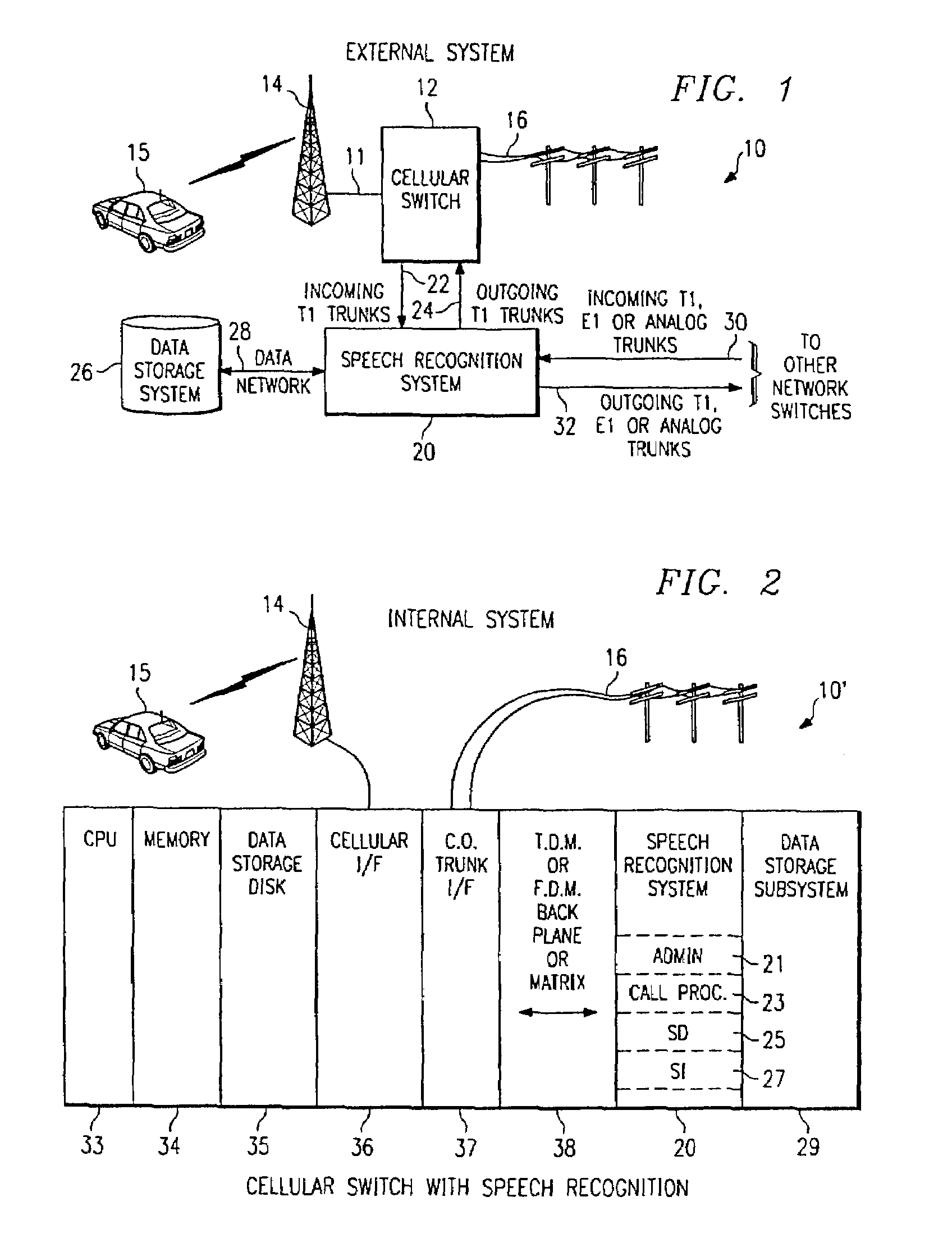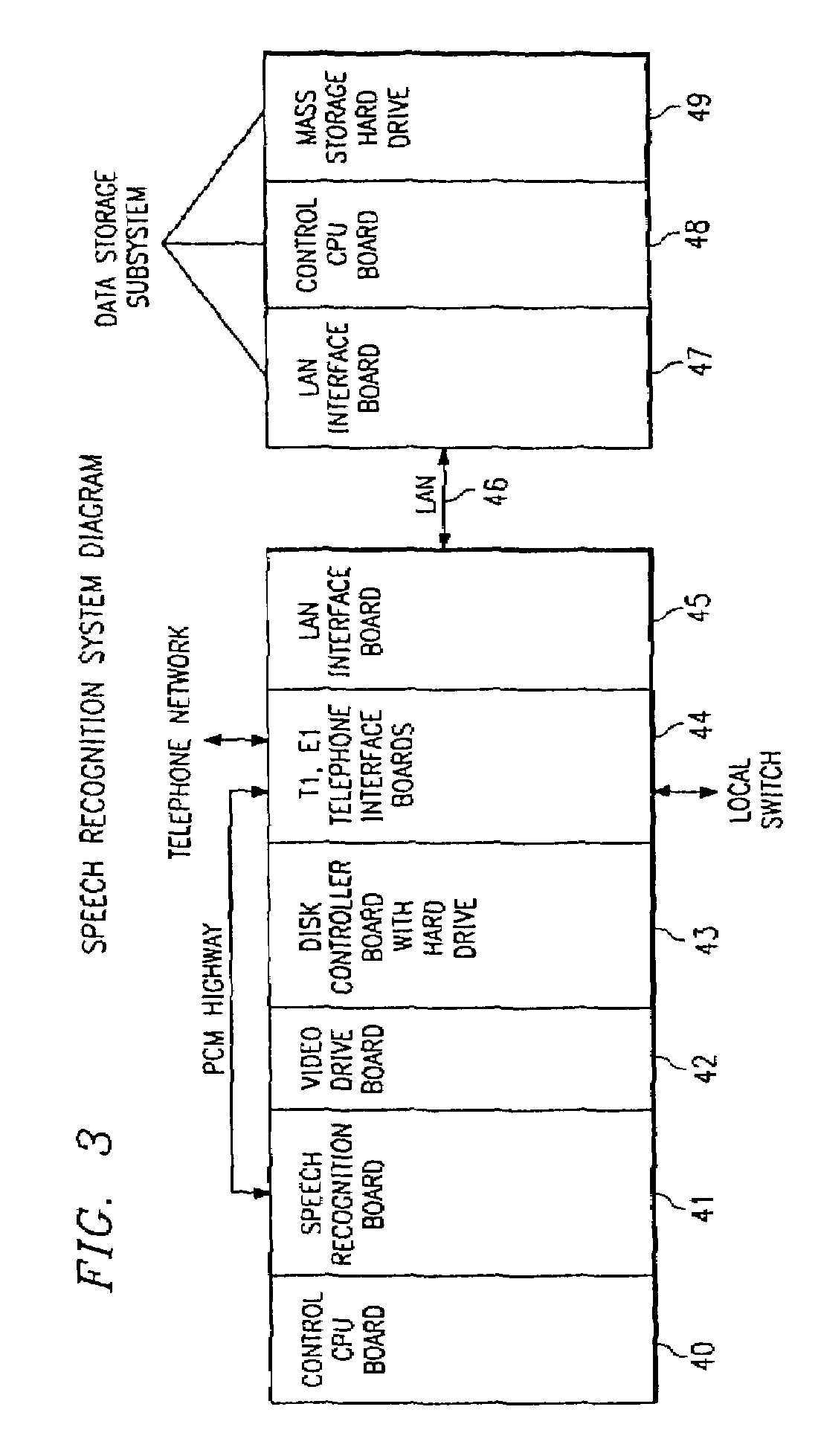Speech recognition system for electronic switches in a non-wireline communications network
a voice recognition and electronic switch technology, applied in the field of telecommunications systems, can solve the problems of voice control dialers of the prior art, signal band limitation and transmission degradation, and cellular voice dialing over a mobile telephone exchange (“mtx”), so as to reduce cost and increase reliability
- Summary
- Abstract
- Description
- Claims
- Application Information
AI Technical Summary
Benefits of technology
Problems solved by technology
Method used
Image
Examples
Embodiment Construction
[0026]FIG. 1 is a block diagram of a cellular telephone network incorporating an external switch-based Speech Recognition System according to the present invention. Although the following description is specifically related to use of the Speech Recognition System at or in conjunction with an MTX of a cellular network, it should be appreciated that the System also interconnects either internally with or as an external peripheral to a personal communications network. Indeed, the principles of the invention are applicable to any cellular-like network application, i.e., where a non-wireline communications network is employed for mobile, satelite, portable or personal communications. The Speech Recognition System can also be used as a shared resource through integration with a plurality of such non-wireline communications networks.
[0027]Referring now to FIG. 1, an exemplary telephone network is a cellular network 10 having a mobile telephone exchange (MTX) switch 12 connected to a transc...
PUM
 Login to View More
Login to View More Abstract
Description
Claims
Application Information
 Login to View More
Login to View More - R&D
- Intellectual Property
- Life Sciences
- Materials
- Tech Scout
- Unparalleled Data Quality
- Higher Quality Content
- 60% Fewer Hallucinations
Browse by: Latest US Patents, China's latest patents, Technical Efficacy Thesaurus, Application Domain, Technology Topic, Popular Technical Reports.
© 2025 PatSnap. All rights reserved.Legal|Privacy policy|Modern Slavery Act Transparency Statement|Sitemap|About US| Contact US: help@patsnap.com



